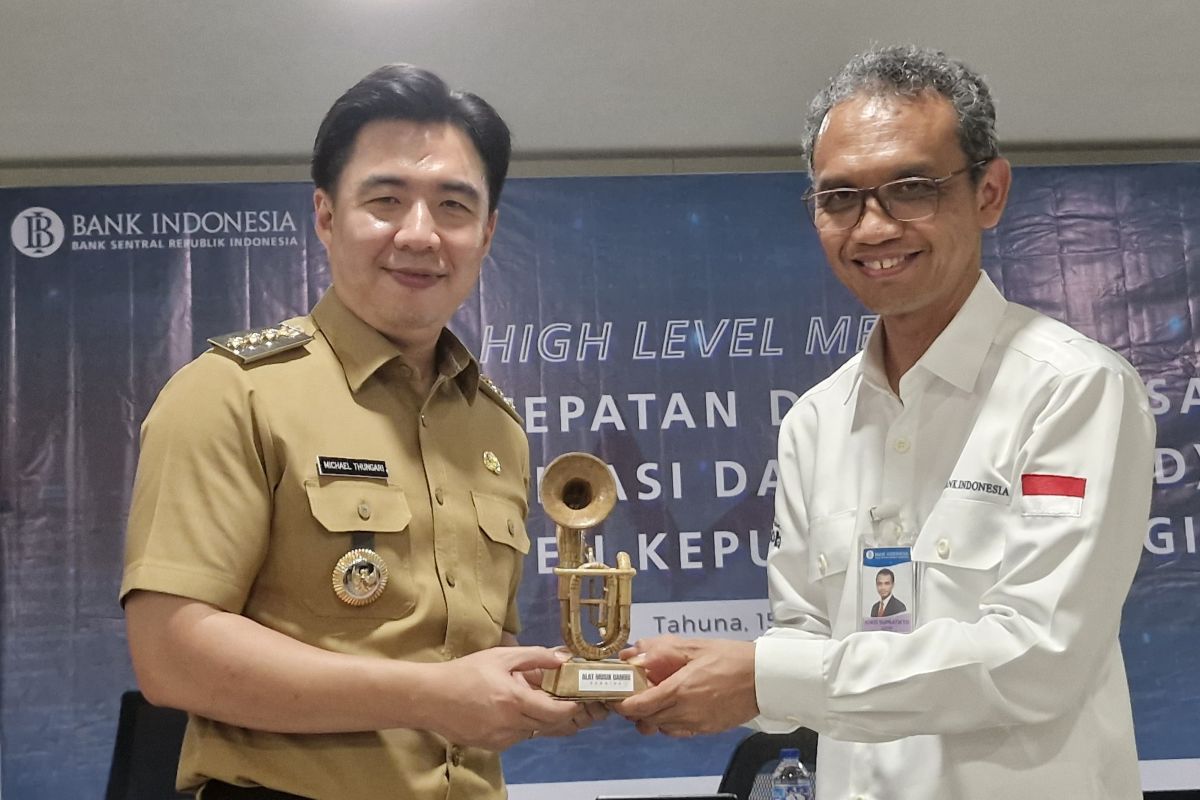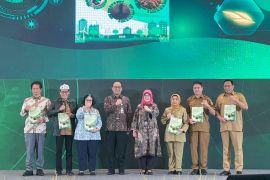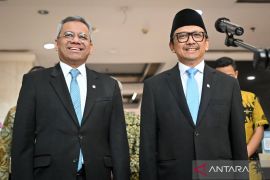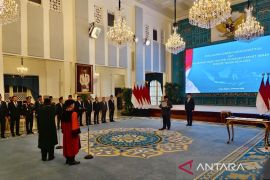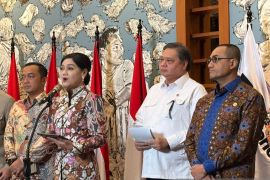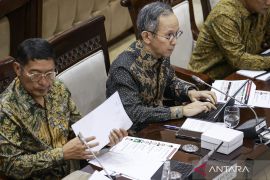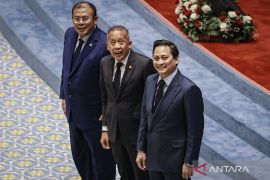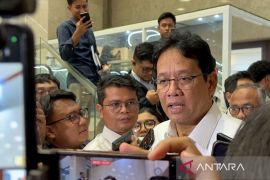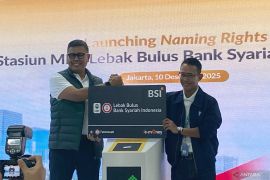“Accurate data is essential in designing strategies for seafood distribution, controlling food inflation, and building a digital ecosystem that supports local fishers,” Sangihe District Head Michael Thungari stated in Sangihe on Wednesday.
He emphasized the importance of comprehensive data collection, covering boat ownership, the number of active fleets, supporting facilities, and the economic potential of each area—especially in the Sangihe Islands, where most residents are fishers.
Thungari noted that the Regional Digitalization Acceleration and Expansion Team (TP2DD) initiative by Bank Indonesia will significantly contribute to the development of a digital ecosystem in Sangihe.
He remarked that Sangihe District is currently among the top five nominees in North Sulawesi Province’s investment competition.
One of its flagship programs is the utilization of fishery products in the integrated fishery center operated by the Public Works and Spatial Planning Office (PUPR) in Santiago.
“We hope this will attract investors, with support and facilitation from Bank Indonesia. Most importantly, digitalization is not just about tools or systems—it is about mindset and cultural transformation,” Thungari emphasized.
He also noted that collaboration between the Regional Inflation Control Team (TPID) and TP2DD, along with a shared vision among local government units, will be key to accelerating regional development.
“If we unite with the spirit of cooperation and technology, Sangihe will have a stronger future,” he affirmed.
Meanwhile, Head of BI’s North Sulawesi Representative Office, Joko Supratikto, stated that digitalization is crucial for improving transaction efficiency and increasing local revenue through fiscal strengthening.
He stated that TP2DD is expected to serve as a positive platform to promote digital transactions within the Sangihe District Government and throughout local communities.
BI also presented updates on digital payment developments and the performance of TP2DD in Sangihe District. Two main focus areas were the expansion of non-cash payment acceptance and the effectiveness of regional digitalization programs.
Although Bank Indonesia does not directly oversee the provision of digital infrastructure, Joko said the institution can encourage telecommunications providers to collaborate in enhancing and accelerating digital infrastructure development in Sangihe.
“In addition to supporting digital infrastructure availability, we are also ready to assist in promoting the use of electronic transactions in the local government and community groups,” he stated.
He expressed hope that the Sangihe District Government would provide non-cash payment channels in collaboration with Bank SulutGo.
Related news: Data center ecosystem needed to build digital resilience
Related news: Indonesia advances inclusive and secure digital ecosystem
Related news: Data center interesting innovation for digital ecosystem: minister
Translator: Primayanti
Editor: Azis Kurmala
Copyright © ANTARA 2025
